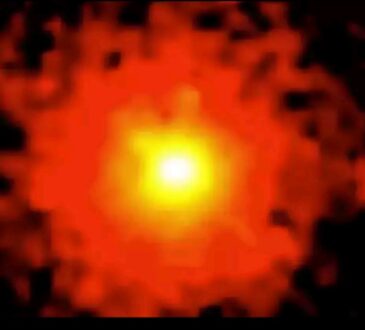
Scientists have made a startling discovery about the future of our universe. A new study suggests that, rather than expanding forever like we once believed, the universe may one day begin to shrink and ultimately come to an end.
They’ve even estimated when that might happen. According to the researchers, this cosmic reversal could begin in about seven billion years, and the entire universe could collapse in on itself about 20 billion years after that. So while it’s definitely a dramatic scenario, no one alive today or for many generations to come needs to panic. There’s still an unimaginably long time before this happens.
The study was put together by scientists from top institutions including Cornell University and Shanghai Jiao Tong University. They believe the universe will keep expanding for a while longer, reaching its biggest possible size when it’s about 33.3 billion years old. Since the universe is currently about 13.8 billion years old, that leaves another 20 billion years before things start going in the other direction. What happens next, according to them, is something called the “Big Crunch.”
The Big Crunch is the exact opposite of the Big Bang, which was the beginning of the universe as we know it. Scientists are now suggesting that the universe will collapse the same way it exploded into existence. The idea is that space is a little like a stretched rubber band. It can keep expanding, but only for so long. Eventually, forces like gravity may overpower the expansion and start pulling everything back in. When that happens, the universe will shrink more and more until, theoretically, it reaches a single point—just like in the beginning.
A key part of this theory revolves around something called dark energy. This is a mysterious force that scientists think is responsible for pushing the universe to expand faster and faster over time. Even though no one really knows what dark energy actually is, we know it exists and that it makes up nearly 70 percent of the entire universe. For the last nine billion years, it’s been making the universe grow at an ever-increasing pace.
To come up with their estimate for the universe’s “death date,” researchers looked at data from major space surveys like the Dark Energy Survey and the Dark Energy Spectroscopic Instrument. These projects gather massive amounts of information about galaxies, cosmic structures, and how space is behaving on the largest scale. By studying the patterns and changes in expansion, scientists believe they’ve seen early signs that the force of dark energy might not stay constant. If it weakens or changes, it could mean that expansion will slow down—and eventually reverse.
That’s what leads to the Big Crunch. According to the team behind this study, after reaching its peak size—roughly 69 percent larger than it is today—the universe will gradually stop expanding and begin to contract. The collapse won’t be sudden or explosive, but rather slow and unstoppable, driven by gravity and changes in dark energy. In the end, everything will return to a single, incredibly dense point.
This idea challenges our previous understanding of the universe’s fate. For years, many scientists believed the universe would either expand forever or eventually just freeze in place. This new research brings back an older theory—the idea that the universe has a built-in expiration date, one that comes not with a bang, but with a slow, quiet collapse. While it’s still just a theory, it’s grounded in real observations and growing data, and it shows just how much we still have to learn about the cosmos.
So, while there’s no need to rush out and prepare for the end of the universe any time soon, this research does give us a profound reminder: everything, even the universe itself, may eventually come to an end.




